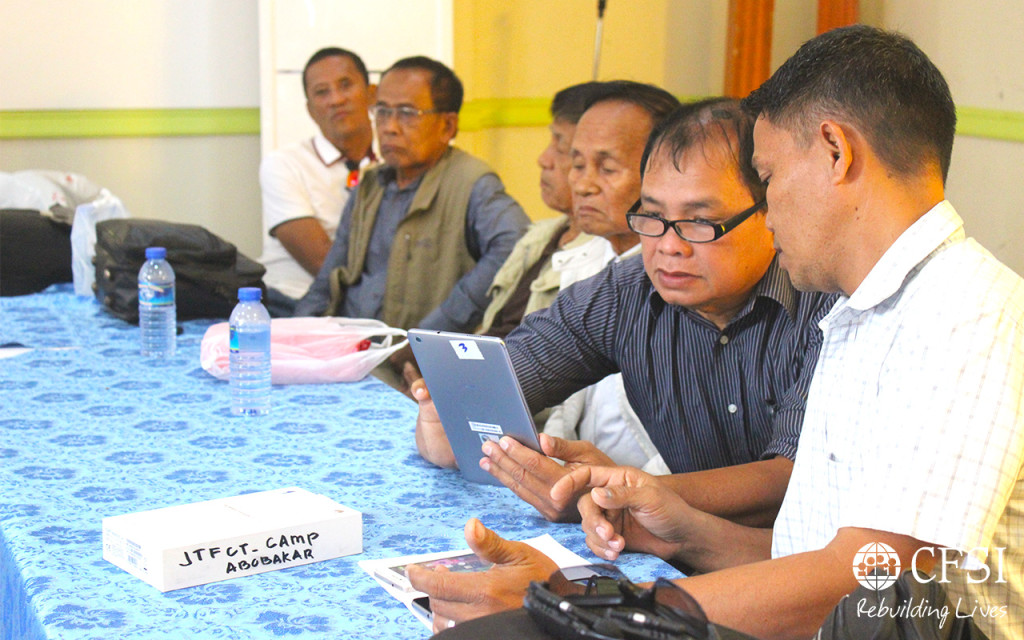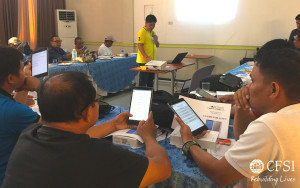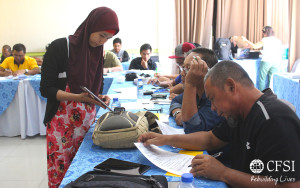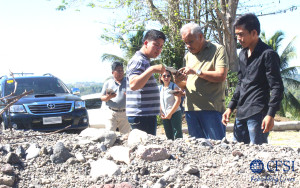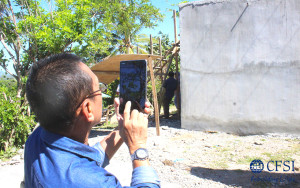To capacitate the members of the Joint Task Forces on Camps Transformation (JTFCT) in using the communication and monitoring tool for efficient and timely reporting, a coaching and mentoring session was held on February 19-20, 2019.
This was done as part of the initiatives under the Mindanao Trust Fund-Reconstruction and Development Project Phase II (MTF-RDP/2) where members of the JTFCT are being empowered for project development and management, community organizing, and monitoring and evaluation of projects.
The JTFCT is comprised of representatives of the six previously acknowledged camps of the Moro Islamic Liberation Front (MILF) and has been entrusted to manage the socio-economic development sub-projects within their camps.
The MTF-RDP/2, funded by The World Bank through the Mindanao Trust Fund (MTF), is a program implemented through a project partnership agreement between the Community and Family Services International (CFSI) and the Bangsamoro Development Agency (BDA). This seeks to improve access of identified beneficiary communities in conflict-affected areas in Mindanao to basic socio-economic infrastructure and alternative learning system.
The android tablet which will serve as the digital tool was also turned-over to the JTFCT members on the advent of the said activity. Upon receiving the gadget, each JTFCT member had signed the agreement which defines their scopes and responsibilities as a user.
“I hope this will strengthen our coordination with the JTFCT,” said Engr. Nasser Sinarimbo, CFSI Project Coordinator of MTF-RDP/2. “This technology aims to provide a uniform medium of information, proper format, efficient and timely delivery of monitoring reports,” he added. He also noted that consequent to the distribution of the said tablets, the program expects the stakeholders to deliver what is expected of them and to uphold communication channels when it comes to project implementation.
Rhadzni Taalim, Project Coordinator of MTF-RDP/2 for BDA expects full utilization of the monitoring tool when the members return to their communities. “Now that the ISM (Implementation Support Mission) is approaching, let us show them the updates in the progress of our projects using these tablets,” he said.
The activity also refreshed the JTFCT members on the roles and responsibilities of sub-project monitoring as well as the tools and forms used to fulfil their functions as such. The participants were also oriented on the technology-based daily construction report and guidelines on how to measure materials such as sand, gravel, and the like. The resource speakers from BDA and CFSI also demonstrated ways on how to take progress photo based on the Quality Assurance Plan (QAP) guidelines and the procedure in filling out the Environmental and Social Management Plan (ESMP).
As part of their simulation sessions, each JTFCT member registered for individual and personalized e-mail addresses. The resource speakers also approached each participant to assist in the usage of the tablet.
To conclude the activity, the participants underwent practical exercises on subproject monitoring using the tool at Nituan, Parang, Maguindanao. These exercises include integrating daily construction report and ESMP, and actual subproject photo documentation for physical progress.
“I hope this will aid the problems in the sub-project implementation and construction,” said JTFCT Chairman for Camp Rajamuda Haron Tahir. “This tablet will add more convenience and fast-track the process of our duties as JTFCT,” he added. “Please expect that we will not fail all of your expectations in handing-over this kind of tool,” he concluded.
The JTFCT performs an important and strategic role in the achievement of the MTFRDP/2 development objectives through participative and timely subproject monitoring. They are committed to the transformation of their respective camps into a peaceful and productive community and responsible of identifying the needs of their community members. They are perceived to be the best source of information to gauge the effectiveness and efficiency of subproject implementation.
—
The Mindanao Trust Fund (MTF) supports the program with the donors such as the European Union, the government of Sweden, Australia, Canada, United States, New Zealand and the World Bank. The World Bank also functions as Trust Fund Administrator and Secretariat.
In support to the objectives of the MTF-RDP/2, the Spanish Agency for International Development Cooperation (AECID) provided complementary assistance directly to CFSI through the project referred to as “Supporting Access to Basic Services and Building Institutional Capacity in Conflict Affected Areas in Mindanao.”


